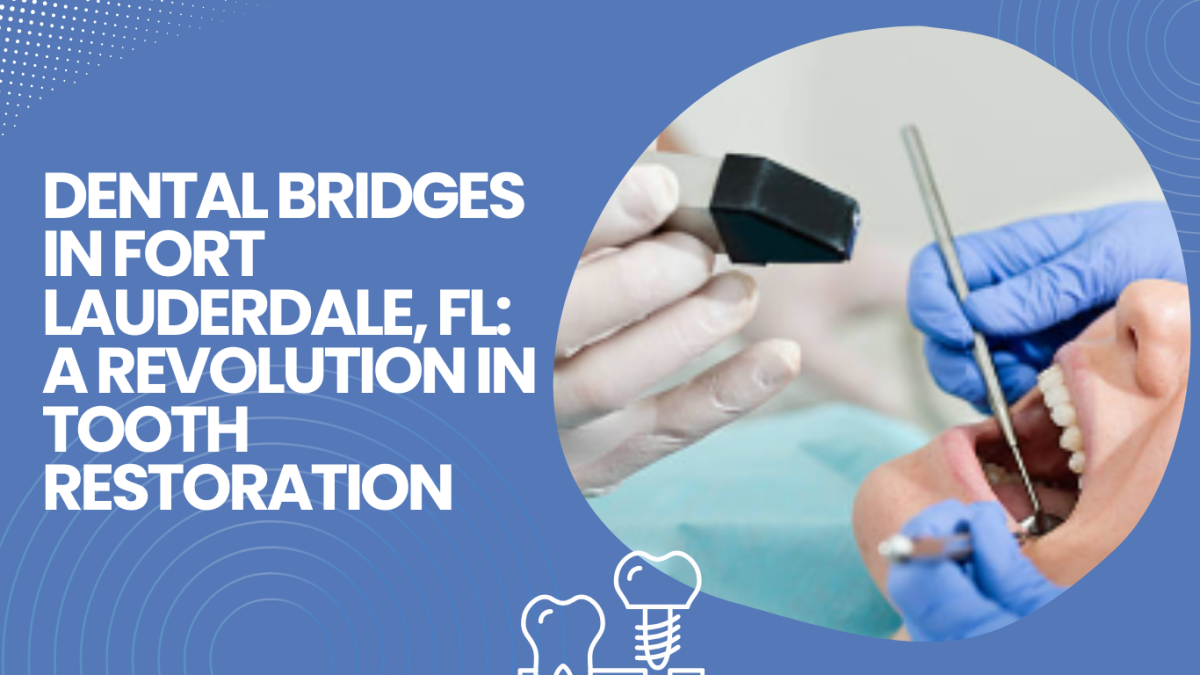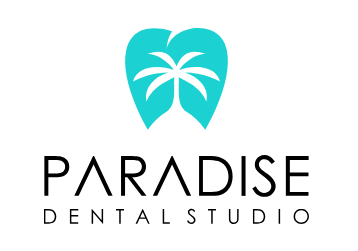Dental bridges are a popular and effective solution for people who have lost one or more teeth. In Fort Lauderdale, FL, where dental care is top-tier, the advancement in dental bridge technology is offering patients a chance to restore their smiles with greater comfort, durability, and aesthetic appeal. The modern dental bridge is more than just a tooth replacement option—it represents a revolution in tooth restoration, providing a permanent solution that looks, feels, and functions like natural teeth.
Whether you're looking to fill a gap in your smile, improve your ability to chew, or enhance your overall oral health, a dental bridge could be the right solution for you. In this article, we’ll explore the benefits of dental bridges, their longevity, maintenance, costs, and the various types available in Fort Lauderdale, FL.
What are The Benefits of Getting a Dental Bridge in Fort Lauderdale, FL?
Dental bridges offer numerous advantages, both functional and aesthetic, making them an excellent choice for patients in Fort Lauderdale who want to improve their oral health and appearance. Here are some of the key benefits:
1. Restoring Functionality and Comfort
A major reason for choosing a dental bridge is its ability to restore proper tooth function. Gaps caused by missing teeth can make it difficult to chew, speak, and even smile comfortably. A dental bridge effectively fills these gaps, restoring your ability to eat and speak without discomfort.
Improved Chewing Ability: With a bridge in place, you regain the full use of your teeth, which helps you chew food more effectively. This improves your overall digestion and makes meals more enjoyable.
Enhanced Speech: Missing teeth can affect your speech, making it harder to pronounce certain words. A dental bridge helps restore normal speech patterns, increasing your confidence in social and professional situations.
2. Improving Aesthetic Appearance
One of the most significant reasons people choose dental bridges is to restore the appearance of their smile. A missing tooth or several missing teeth can impact your self-esteem and make you feel self-conscious about smiling. Dental bridges are designed to look and feel like natural teeth, enhancing your facial appearance.
Natural Look: Modern dental bridges are made from high-quality materials like porcelain, which mimic the color and texture of natural teeth. This allows the bridge to blend seamlessly with your existing teeth, making it almost indistinguishable from the real thing.
Restored Smile Confidence: With a dental bridge in place, you can feel confident in your smile again, whether you’re in a business meeting, family gathering, or social setting.
3. Preserving Oral Health
Missing teeth can lead to a host of oral health issues, such as shifting teeth, bite misalignment, and jawbone deterioration. A dental bridge helps prevent these problems by filling the gaps left by missing teeth and restoring the natural alignment of your bite.
Preventing Shifting Teeth: When you lose a tooth, the neighboring teeth may shift to fill the gap, which can affect your bite and lead to additional dental problems. A dental bridge prevents this from happening by stabilizing the surrounding teeth.
Protecting the Jawbone: Tooth loss can also lead to bone loss in the jaw. By replacing the missing tooth with a dental bridge, you help maintain the structure and health of your jawbone, preserving your overall oral health.
4. Long-lasting and Durable Solution
Dental bridges are designed to be durable and long-lasting, providing a reliable solution to missing teeth. With proper care, they can last for many years, making them a cost-effective investment in your oral health.
How Long Do Dental Bridges Last, and How Can I Maintain Them?
One of the primary concerns for people considering dental bridges is how long they will last. Fortunately, dental bridges are designed to be a long-term solution when properly cared for. Here’s what you can expect in terms of longevity and maintenance:
1. Longevity of Dental Bridges
On average, dental bridges can last anywhere from 5 to 15 years, depending on the type of bridge, the materials used, and how well you care for them. Some high-quality bridges, especially those made from porcelain or zirconia, may even last longer with proper maintenance.
Material Influence: The longevity of your dental bridge largely depends on the materials used. Porcelain and zirconia bridges are known for their durability and aesthetic qualities, while metal bridges tend to be more long-lasting but may not provide the same natural appearance.
Factors That Affect Longevity: Proper oral hygiene, avoiding hard foods, and wearing a nightguard to prevent teeth grinding can help extend the life of your bridge.
2. Caring for Your Dental Bridge
Maintaining your dental bridge is essential to ensuring its longevity. Like your natural teeth, your bridge requires regular care and attention to keep it in top condition.
Daily Brushing and Flossing: Brushing and flossing around the bridge are essential to remove plaque and prevent gum disease or decay from affecting the supporting teeth and the bridge itself.
Regular Dental Visits: Regular check-ups with your dentist are important for monitoring the condition of your bridge and ensuring that the supporting teeth are healthy.
Avoiding Certain Foods: It’s a good idea to avoid eating sticky or hard foods that could damage or dislodge the bridge. Chewing on ice, hard candy, or pens can put unnecessary stress on the bridge.
What Is The Cost of A Dental Bridge in Fort Lauderdale, FL?
The cost of a dental bridge can vary depending on several factors, including the type of bridge, the materials used, and the complexity of the procedure. In Fort Lauderdale, FL, the average cost of a dental bridge ranges from $1,000 to $3,000 or more per unit.
1. Factors Influencing Cost
Several factors can affect the cost of your dental bridge treatment, including:
Type of Bridge: Traditional bridges are typically less expensive than newer options, such as implant-supported bridges, which involve additional procedures.
Materials: The material used for the bridge, such as porcelain, zirconia, or metal, can influence the overall cost. Porcelain and zirconia are more expensive than metal-based bridges but offer a more natural appearance.
Complexity of the Case: If additional work is required, such as tooth extractions or gum treatments, the overall cost of the procedure may increase.
2. Insurance Coverage and Financing
Many dental insurance plans provide coverage for dental bridges, although it may vary based on the type of plan you have. Some plans cover a portion of the costs, while others may have specific requirements regarding the type of bridge and the extent of the damage.
Insurance Plans: Check with your dental insurance provider to see what is covered under your plan and whether you need to meet any specific requirements for the treatment.
Financing Options: If your insurance doesn’t cover the full cost or if you prefer to pay over time, many dental offices offer financing options to help make the cost of a dental bridge more manageable.
Are There Different Types of Dental Bridges Available, And Which One is Best For Me?
Dental bridges come in various types, and the best option for you depends on your individual needs and the extent of the tooth loss. Here are the most common types of dental bridges:
1. Traditional Dental Bridges
Traditional bridges are the most common type and involve creating crowns for the teeth on either side of the gap, with a false tooth or teeth in between. The crowns are cemented into place, and the false teeth are supported by the adjacent natural teeth.
Ideal For: People who have healthy adjacent teeth that can support the bridge.
Advantages: This is the most cost-effective and straightforward type of bridge.
Disadvantages: It requires reshaping the adjacent teeth, which may weaken them.
2. Cantilever Bridges
Cantilever bridges are similar to traditional bridges, but they are supported by only one adjacent tooth instead of two. This type of bridge is typically used when there is only one tooth next to the gap.
Ideal For: Gaps where only one adjacent tooth is available for support.
Advantages: Requires less alteration to the adjacent teeth.
Disadvantages: Not as stable as a traditional bridge and may put more pressure on the supporting tooth.
3. Maryland Bridges (Resin-Bonded Bridges)
Maryland bridges consist of a false tooth supported by a metal or porcelain framework that is bonded to the back of the adjacent teeth. This type of bridge is often used for front teeth.
Ideal For: People who need a bridge for a front tooth and want a less invasive option.
Advantages: Less destruction of adjacent teeth and a more affordable option than other types of bridges.
Disadvantages: Not as durable as traditional bridges and may not be suitable for back teeth.
4. Implant-Supported Bridges
Implant-supported bridges use dental implants as the foundation instead of natural teeth. A titanium post is surgically placed into the jawbone, and the bridge is attached to the implants.
Ideal For: People with multiple missing teeth who want a more permanent and stable solution.
Advantages: Provides greater stability and strength compared to traditional bridges and doesn’t require altering adjacent teeth.
Disadvantages: More expensive and requires a more complex procedure, including surgery and healing time.
In Fort Lauderdale, dental bridges are a revolutionary solution for restoring missing teeth and improving both the function and appearance of your smile. With different types available and a range of benefits, dental bridges are a valuable option for many people seeking tooth restoration. By understanding the various types of bridges, the costs involved, and how to maintain them, you can make an informed decision and enjoy a restored, beautiful smile for years to come.
Restore Your Smile with Dental Bridges at Paradise Dental Studio of Fort Lauderdale
At Paradise Dental Studio, we specialize in providing high-quality dental bridges to restore your smile, improve function, and boost your confidence. Whether you're missing one tooth or several, our team of experts will help you choose the perfect bridge solution tailored to your needs.
Our advanced dental bridge options, including traditional, cantilever, Maryland, and implant-supported bridges, ensure you receive the most suitable and durable solution for your smile. With a focus on comfort, precision, and aesthetic appeal, we guarantee a seamless and natural-looking result that will help you enjoy eating, speaking, and smiling with ease again.
Contact Paradise Dental Studio today for a consultation and let our experienced team guide you through the process. We offer personalized care, flexible financing options, and top-of-the-line materials to help restore your dental health. Call now to schedule your appointment and start your journey toward a healthier, more beautiful smile!




